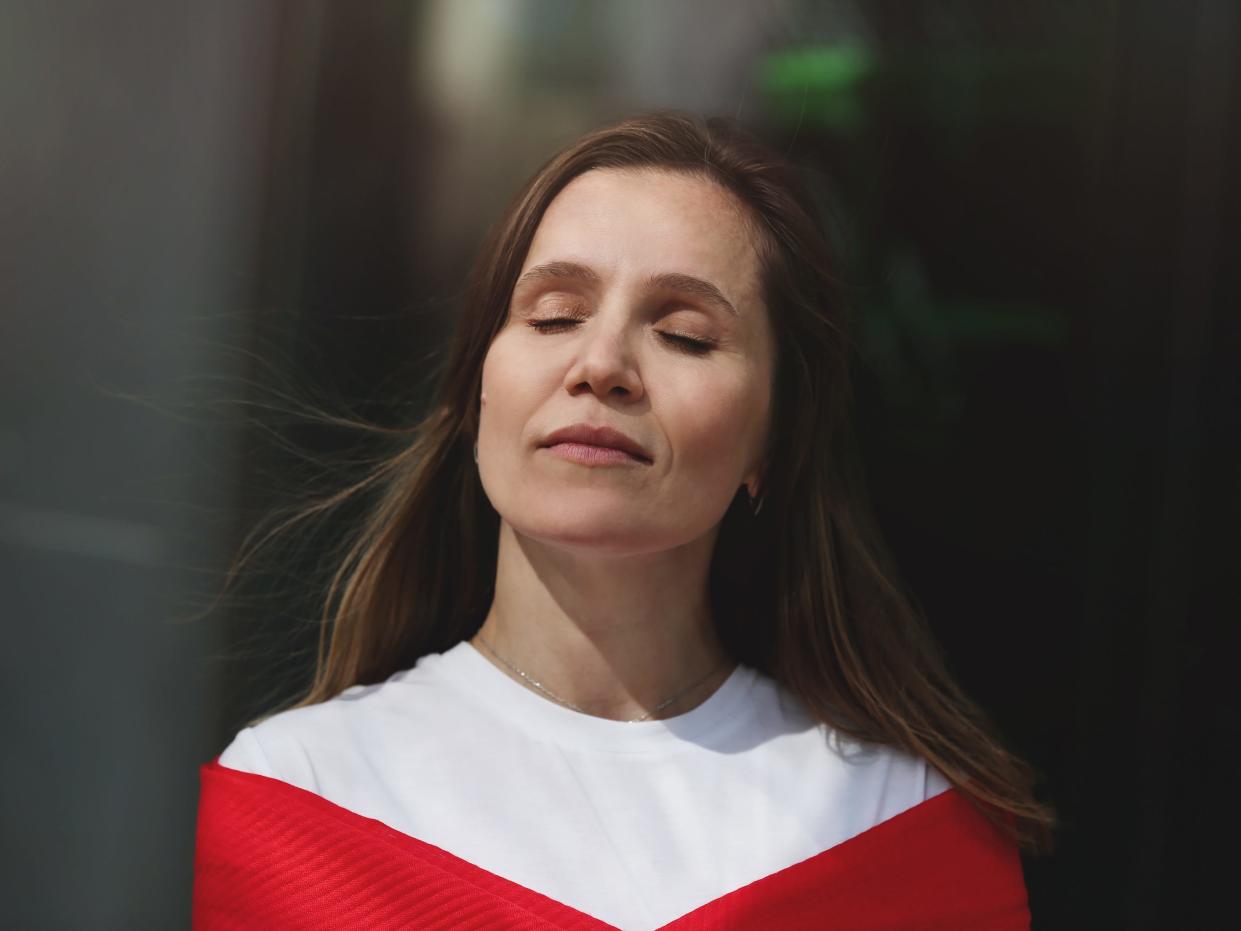Why we are hard-wired to feel 'sunshine guilt' — and what you can do to manage it

Sunshine guilt is when you feel anxious about staying inside when it's sunny and nice outside.
People might have FOMO from seeing others on social media enjoying time outside.
A neuropsychologist suggests people liven up their indoor space with plants and stay active.
Even if you don't live somewhere known for breaking rainfall records, you've probably seen the effects of "sunshine guilt," as it's called on TikTok. For instance, you might notice your co-workers flocking outside to eat lunch or friends posting about weekend plans involving hiking trails or a day at the beach.
Sunshine guilt is when you feel anxious or guilty about staying inside and not enjoying a sunny day to the fullest. Maybe you'd prefer to lie in bed and read or watch TV instead of venturing outside or getting sand in body crevices you can't reach.
What is sunshine guilt and why do we experience it?
Sunshine guilt refers to the "pressure you feel to be outside and enjoying the weather when it's a sunny day," Patrice Le Goy, a psychologist and licensed marriage and family therapist, told Business Insider. You might feel ungrateful for wanting to be inside resting or doing nothing.
This feeling tends to be more common if sunny days are rare or you're transitioning from winter to spring. Since you don't know when you'll have another opportunity to enjoy the weather, sunshine guilt is considered a form of FOMO (fear of missing out), she added.
Sometimes you don't have a choice about when you schedule activities. Perhaps you're busy working, studying, or doing household chores and feel like you're "missing out on the benefits and pleasures of being in the sunshine," Sanam Hafeez, a neuropsychologist, told Business Insider.
Many people are aware that being outside can contribute to enhanced mood and vitamin D production, so they might feel guilty for having to stay inside. In addition, some "cultures emphasize spending time outdoors in nice weather, encouraging a belief that staying inside is a waste of a good day," she said.
Another reason for sunshine guilt is seeing people enjoying outdoor activities. A combination of social media and peer pressure can amplify feelings of guilt, particularly if you think of yourself as a sun worshipper or someone who loves outdoor activities.
How is sunshine guilt different from summertime seasonal affective disorder?
About 5% of the US population experiences seasonal affective disorder (SAD), according to Mental Health America. Someone with SAD may "experience depression, fatigue, appetite changes, and other disruptions corresponding to darker and colder months," Le Goy said.
Of those affected by SAD, about 10% experience depressive symptoms during the spring and summer, otherwise known as summer-pattern SAD or summer depression. Symptoms of summer depression tend to improve as the weather becomes sunnier and warmer or with a treatment such as light therapy, Le Goy explained.
Unlike summer-pattern SAD, sunshine guilt is "not a medical condition and does not typically cause severe mood disturbances or functional impairments," Hafeez said. In addition, sunshine guilt is often temporary and can be resolved by spending time outside or directing your focus away from the weather.
On the other hand, summer-pattern SAD is a recognized medical condition characterized by symptoms like irritability, trouble sleeping, and loss of interest in activities, which significantly impact daily functioning and quality of life, she explained. This condition can last weeks or months and typically requires medical or therapeutic intervention.
Sunshine guilt tends to be situational. For example, you might feel guilty for missing an outdoor concert or wedding. In contrast, summer-pattern SAD may be prompted by changes in sunlight exposure, which affect your circadian rhythms, melatonin production, and serotonin levels, Hafeez said.
What can you do to manage sunshine guilt?
If you're experiencing sunshine guilt, you can develop strategies to find a healthy balance between indoor and outdoor activities. For instance, you can schedule outdoor activities on your days off and weekends or prioritize completing indoor tasks, so you have more time for outdoor enjoyment, Hafeez said.
Another tip is incorporating small amounts of outdoor time throughout your day, like going for a walk at lunch or stepping outside to look at the scenery. If going outside isn't possible or desirable, Hafeez suggested the following practices to help reduce feelings of guilt:
Liven up your indoor space with plants and natural light
Practice mindfulness by focusing on the present moment
Make time for enjoyable indoor hobbies like reading or cooking
Stay active with indoor exercise like dance or yoga
Spend time with family or friends indoors or plan virtual meetups
Be kind to yourself for needing rest
Consider talking to a mental health professional if you're feeling depressed or overwhelmed
Although sunshine guilt isn't a clinically recognized condition, it's helpful to acknowledge that it is "a real thing people experience, and you don't have to do anything about it if you don't want to," Le Goy said.
If you're tired, listen to what your body needs, whether it's rest or a nourishing meal. Remind yourself that sunny weather is enjoyable when you want to be outside. You might even welcome a rainy day because then you won't feel pressured to go outside and make the most of your day, she added.
Nandini Maharaj is a freelance writer covering health, wellness, identity, and relationships. She holds a master's degree in counseling and a doctorate in public health.
Read the original article on Business Insider

